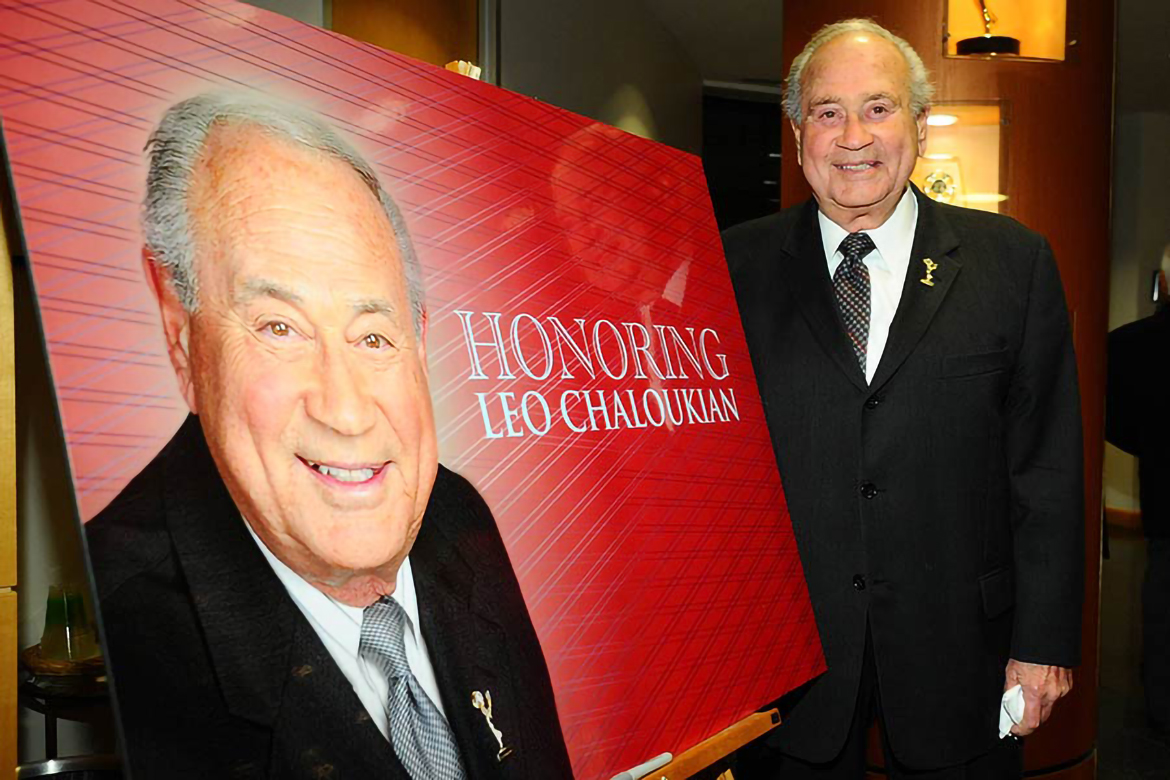By Diego Ramos Bechara
LOS ANGELES (Variety) — Leo Chaloukian, a multi-Emmy Award-winning sound designer and former chair of the Television Academy, died on July 18. He was 97.
During his 60-year career in sound, Chaloukian won four national Emmys and two regional Emmys — working at Ryder Sound Service, a company he’d eventually become the sole owner of for most of his career.
He worked on sound for National Geographic specials, David Wolper Productions documentaries and classic television shows like “Lassie,” “Death Valley Days,” “Sea Hunt,” “Maverick,” “Route 66,” “Gunsmoke” and Jacques Cousteau specials.
Chaloukian also oversaw the sound design for the 1967 film “The Graduate” and, with his staff of audio engineers, created the sound design for 1969’s “Easy Rider.”
The company also contributed to the recording, rerecording and mixing for “Love Story,” “The Godfather,” “Chinatown,” “Saturday Night Fever” and the first Star Trek movies, as well as “Raiders of the Lost Ark,” “Tootsie” and “The Killing Fields.”
Chaloukian led the company to numerous Emmy wins, including the 1986 Emmy for Best Achievement in Sound for the television movie “Cross of Fire.” The same year, Ryder won the Oscar for Best Achievement in Sound for “Platoon.”
Chaloukian sold Ryder to Soundelux Entertainment Group and became the company’s senior vice president in 1997 before serving on the Motion Picture Academy Board in 1970.
He served as Television Academy president from 1989 to 1993, and was awarded the Syd Cassyd Founder’s Award in 2004 for his years of service to the Academy.
“My dad had a passion for everything he did,” Kimme Chaloukian Black, Chaloukian’s daughter, said in a statement. “When he walked and graduated with the Belmont class of 2017, he said, ‘Find what’s in your heart, and never let it go. Don’t let anybody tell you that you can’t achieve your goals.’”
Chaloukian was born on June 18, 1927, in Chicago before eventually moving to a ranch in Agoura Hills, Calif., in 1939. His parents immigrated to the U.S. to escape the Armenian Genocide, and, as a young boy, he exercised horses for breeders and Hollywood stars, among them Joel McCrea, and even won a few horse races in Tijuana.
Following the end of his Navy service, Chaloukian worked as a jeweler and acted in several films, but a director remarked that he would be better off working behind the scenes. After visiting his cousin, who worked as a mixer at Ryder Sound, Chaloukian decided that “this was a career with many possibilities.”























































